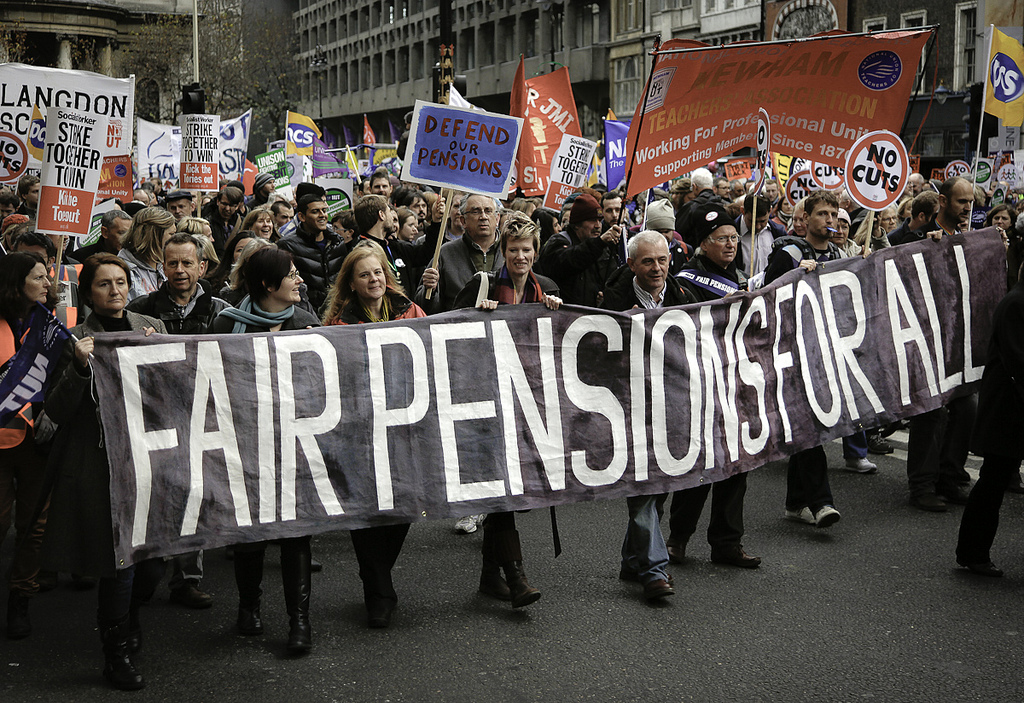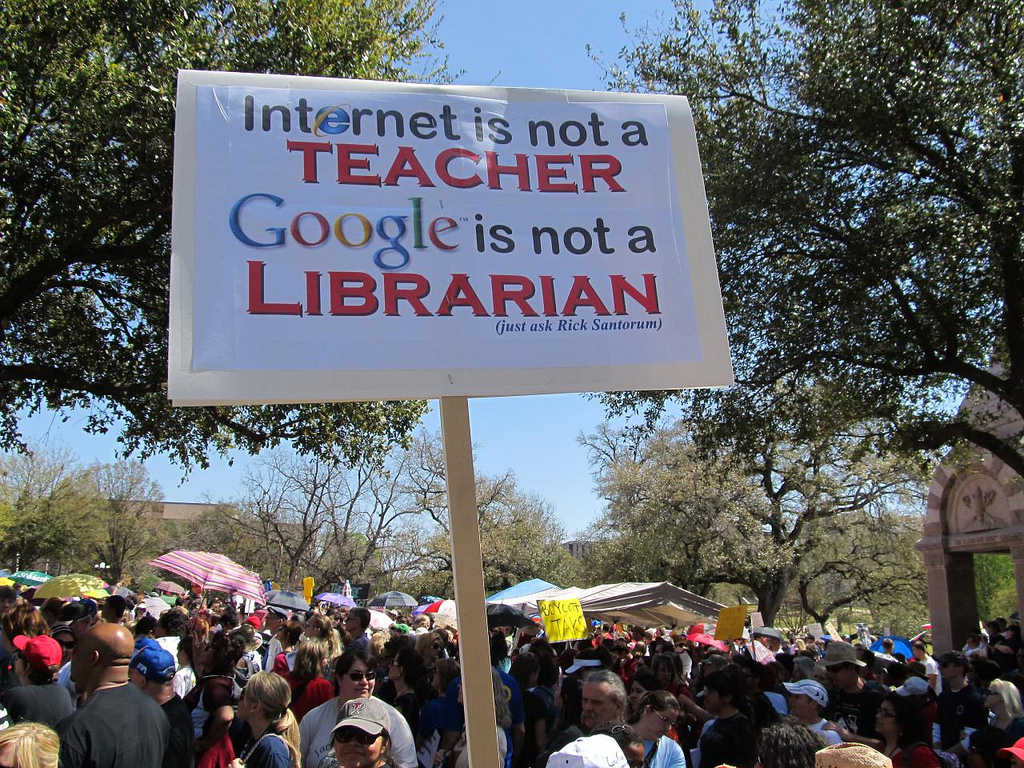On the Front Line

In an open letter to the President and Principal of Queen Mary University of London, Professor Colin Bailey, on March 14, 2018, one hundred and five teachers from the School of English and Drama agreed that "almost the entirety of our school has participated in UCU strike action, engaging with students on the issues of pensions and of student bursaries. In emails, classrooms and on the picket lines, our students have offered their enthusiastic support for this action. They recognize this strike as part of a shared struggle to define what the university can be."
The strikes are as a result of an idea proposed by the Universities Superannuation Scheme (USS) to move university staff, Financial Times reports. This means that instead of receiving a retirement grant from the government, UK professors and their employers are now expected to invest in their post-retirement endeavors whether it is to buy a pension or benefits of retirement.
The USS is £12.6 billion deep in deficits and the pension cut will help balance the accounts, even though up to sixty-one universities could be affected. The University and College Union (UCU) has declared that, after voting, eighty-eight percent of staff were in support of the strike, while around ninety-three percent could settle for less than a strike. While the higher education committee of the Union is weighing its options contemplating which decision to make, UK university students are standing by their lecturers.
Photo Credits: Flickr/Sven Loach.
"Teachers are the backbone of any society. They are very important," a Heriot-Watt University postgraduate student, Iman Madugu, told the Peacock Plume. Some of her teachers are not going to class and, instead, are holding signs in the morning around the entrance of the school, but not all are striking. She explained that the protests are taking place beyond the walls of Edinburgh and in Scotland as a whole. Layan Sadeq, a mechanical engineering student at Nottingham Universty, agreed with Iman, saying, "I think lecturers work really hard and they deserve more."
Even though she appreciates that the funds are actually being allocated to charity, Zainab Musa, a pharmacology student at University College London, doesn't think it is fair, because "university heads get insane bonuses and raises on a yearly basis." The university professors have been protesting actively, marching and canceling lectures while some are camping outside the provost's office. The sum of money that was to be paid to retired University professors by the government is now being directed to contribution schemes.
For another UCL student, Mohammed Abdulsalam, his teachers are protesting passively, so his classes are not being interrupted. "My parents don't want any activities that will affect the course of my studies," he told the Peacock Plume. But he still supports the protest because the pension cuts will affect the lives of the lecturers, who already had low pensions.
Photo Credits: Flickr/Cyberchuck2000.
Moyo Kalesanwo, a student expected graduate with a degree in Politics and International Studies from the University of Warwick in a few months, is conflicted. On one hand, her teachers are not attending lectures and seminars and ignoring emails from students, but, on the other, "I support what they do because pensions are not something I think you should play with, and it puts them in a very vulnerable position."
On strike days, Warwick professors protest outside main sites of the campus, such as the library, piazza and university house. She read that the strikes could go on for a long time, possibly delaying her graduation, though her grades may not be affected. While the exam topics and essay questions she picked were taught or covered in the first term, she fears that people with modules where a lot of content has not been taught are in a more precarious position. If the strike does affect their final grades, Moyo says, "I 100 percent will not be okay with it and I think a lot of students - me included - would definitely take it up with the University and Vice Chancellor and maybe make a demand for mitigating circumstances."
Students at Loughborough University are not worried about their grades. "A lot of the lecturers are passively trying to accommodate for the students, especially final year students with projects," Imran Mohamed Marwa said. "They are extending deadlines and still holding lectures, recording lectures for review and uploading PowerPoint slides and course materials online although they are part of the Union." Imran is also a final year student, hoping to graduate with an Electrical and Electronics Engineering degree. He added that it is unfortunate and unfair for their pensions to be reduced when universities are making so much money and even increasing tuition fees. Hanish Thakera, from the school and course, added that, "I'm not okay with it affecting my grade negatively."
Image Credits: Flickr/Tad Zapasnik.
"I was okay with it for the first two weeks, but now it is getting out of hand," Hafsah Ahmad Salihijo, who is a studying Business Management and Economics at Keele University, told the Peacock Plume. The professors are also actively protesting on school grounds and not only have they canceled lectures and tutorials, they have also not released assignment questions or guidance that should have been released. She is certain that the protest will affect her grades, as she has not learned much in the past few weeks, which is something her parents are not exactly happy with. However, "I am supporting this because I believe it's unfair as university staff are already receiving lower pays than other skilled professionals."
University of Leicester professors are not shying away from skipping out of lectures and ignoring work-related emails. Kesiena Ujeyah - a second-year student pursuing a Bachelors' degree in International Relations - has group work and three course-works due, but no support from her teachers. She said that "pensions are important. When people retire, they lose their income and pensions help make up for part of that income loss." Her mother is self-employed and has her personal savings for her post-retirement enjoyment. However, Kesiena's aunts, uncles and grandmother work for the NHS and are part of UNISON, making them rely heavily on their trade union for support. Without the support and security of the trade unions, NHS staff are frequently abused and threatened with their salary.
Researchers from the University of Oxford, the London School of Hygiene & Tropical Medicine, the University of Glasgow and the University of Liverpool came together to carry out an assay which gave them a reason to believe that there is a 'significant link' between Pension cuts and an increase in the death rate elderly pensioners. In the article, David Stuckler, a Policy Analysis and Public Management professor at the University of Oxford, was quoted to have said, "This suggests that even seemingly small cuts to support for vulnerable older persons can have a devastating effect - possibly even costing them their lives."










